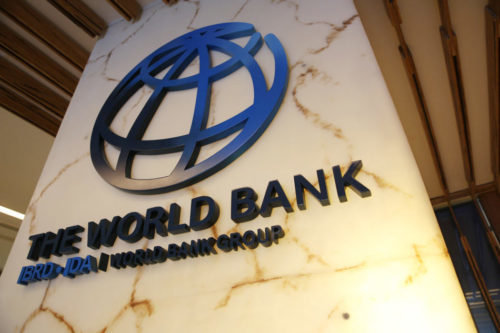Nigeria stands to increase its customs revenue by as much as 66 percent if the federal government eliminates arbitrary import bans and aligns its tariff policy with regional standards, the World Bank has said.
In the May 2025 edition of its Nigeria Development Update, the Bretton Woods institution warned that Nigeria’s current trade policies are distorting market prices, encouraging petrol and goods smuggling, and significantly weakening customs enforcement — all at great cost to government revenue.
The report attributes much of the lost revenue to the country’s high tariffs, import prohibitions, and non-tariff barriers, which it says create incentives for evasion and make enforcement difficult. These restrictions, the Bank said, also fuel inflation by pushing up consumer prices, especially for essential goods consumed by low-income households.
“Lifting them could increase current customs revenues by 66 percent, contributing to the ongoing fiscal adjustment,” the report noted. It added that the government should seize the opportunity provided by a more market-reflective and competitive exchange rate to reorient its trade policy toward stimulating economic growth and job creation.
According to the report, Nigeria maintains some of the highest average tariff rates in sub-Saharan Africa—twice the regional average. It also enforces a long list of import bans, especially on products with high domestic demand, including food and medical supplies.
With the naira now trading at more competitive levels, the World Bank said Nigerian producers are better positioned to compete with imports and expand into export markets. However, it emphasized that access to imported intermediate goods and services remains critical for boosting local production and export capacity.
The Bank advised the federal government to gradually harmonize its tariff regime with the ECOWAS Common External Tariff (CET), beginning with food items, which have the most direct impact on household welfare.
The CET is a unified tariff system adopted by all ECOWAS member states, designed to facilitate trade across the region by applying the same customs duties, import quotas, and preferences to goods entering from outside the bloc.
The World Bank also warned that current trade restrictions disproportionately harm poor Nigerians. It estimates that import bans have increased prices by an average of 5.8 percent, especially for essential goods. Removing these bans, it said, could reduce Nigeria’s poverty rate by up to 2.6 percentage points.
“Reducing tariffs and import bans would confer direct benefits to consumers, giving them access to more products at lower prices, easing inflationary pressure, and improving purchasing power — particularly in the face of Nigeria’s rising cost of living,” the report concluded.
The World Bank’s recommendations echo recent criticisms by the United States Trade Representative (USTR), which in April faulted Nigeria’s ban on 25 categories of imports, arguing that the policy restricts market access for American exporters.
